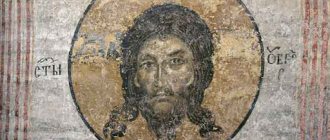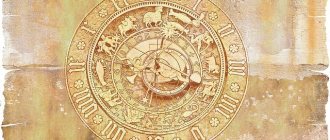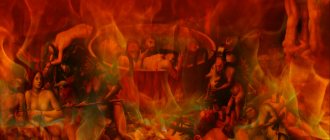THOMAS
Knowing all this in advance, was it not cruelty on His part to create this world?
Reader question:
I believe in God, but I cannot accept the Christian axiom that God is Love. After all, if God is omniscient, then, when deciding to create the world, He initially foresaw how much grief and suffering awaited humanity in its history, how much blood and tears would be shed. But, most importantly, He foresaw that millions of people would not be saved, would destroy their souls, and upon death would go into eternal torment. Knowing all this in advance, was it not cruelty on His part to create this world? And, in particular, how can an all-good God give life to a person whose future spiritual death He knows in advance? Please answer, this is very important to me.
Best regards, Yakov
Alexander Tkachenko answers:
The history of humanity is the history of human suffering. We try not to think about it, but if we try to look at any era in the life of any people, the picture that emerges is simply depressing. Endless wars, oppression of the weak, violence, triumphant injustice, cruel crimes and no less cruel punishments for them, sophisticated executions, torture... Everywhere and always, practically the same thing - blood, tears, suffering. And in those short intervals when people did not kill or torture each other, floods, fires, earthquakes fell upon them, they were tormented by diseases and pestilences; droughts and locusts destroyed the harvest in their fields, dooming people to hunger and poverty. And if we assume that God created this crazy world and this unfortunate man, the question inevitably arises: what moral qualities should such a deity have? The conclusions suggest themselves: either this deity is incredibly cruel and merciless, or he is deeply indifferent to everything that happens in the world he created.
This is exactly how the pagan world saw its gods. And it doesn’t matter what culture or historical period we are talking about. The attitude of the pagan gods towards people has always and everywhere been thought of as quite definite: either merciless justice, from which no one born can escape, or indifference on the verge of insanity.
And the Phoenician Baal, into whose red-hot statue dozens of newborn babies were thrown every day; and the Greek celestials, frolicking on Olympus, each in their own way; and the Hindu Brahman, who created the world and happily fell asleep, leaving it unattended - all of them were quite consistent with the sad picture of the world over which such gods stand. True, this correspondence hardly made the person feel any better. But here, at least, everything was clear: the world is cruel because the god who rules it is cruel.
And suddenly this strange Christianity appears, which proclaims that God is not indifferent to the fate of people. Moreover: Christians claim that God loves us, God is Love, and it is love, and not justice, that is the measure of God’s attitude towards humanity. The statement is completely unprecedented and fundamentally contrary to the life experience of any person. No, of course, the thought of God’s love for people in itself is very beautiful and comforting. But no matter how much you say “halva,” it won’t make your mouth any sweeter. Let's assume that God really exists - love. And immediately, instead of a hopeless, but completely clear and logical pagan picture of the world, we get obvious nonsense. How did God-Love allow this whole nightmare of human history, with its wars, violence, rivers of shed blood? Where did He look when the people He loved were suffering and tormented so cruelly? And most importantly: why did a loving God create man, knowing what sad fate awaited him?
These questions are quite relevant today, since, unfortunately, pain and grief in the world have hardly diminished since the times of the Gospel. But in order to answer them, it is necessary to first understand: what exactly is suffering, and will humanity become happier if it loses the ability to experience it?
The Bible gives two accounts of the creation of man.
The Holy Scriptures give two stories about the creation of man (Genesis 1:26-31; 2:7-25). At the same time, the Holy Fathers point out that when creating man and angels, God acts differently.
So the Monk Isaac the Syrian says that:
...the Lord created the world of angels in silence. The entire material world is also created by Him only according to His own will, however, before the creation of man, God, as it were, stops.
The Bible tells us that this act was preceded by some kind of meeting of the Divine Persons of the Holy Trinity:
Life 1, 26
Let us create man in our image and in our likeness.
The act of human creation was preceded by the Eternal Council.
Orthodox theologians call such a meeting of the Divine Persons of the Trinity the Eternal Council. At the same time, the actions of the Persons of the Holy Trinity are united. Such a Council emphasizes that man occupies a special place in the Divine plan for the world.
The Orthodox teaching about man consists of three components:
- doctrines about the composition of human nature;
- teachings about the image and likeness of God in man;
- doctrines about the purpose of man.
The creation of man.
Fresco. Luca Giordano. 1864-1686. The most famous story about the creation of man is contained in the Book of Genesis (Genesis 1, 26-31). All of them are based on the following story from the Holy Scriptures:
Gen 1, 26-31
And God said: Let us make man in our image, according to our likeness; and let them have dominion over the fish of the sea, and over the birds of the air, and over the livestock, and over all the earth, and over every creeping thing that moves on the earth. And God created man in His own image, in the image of God He created him; male and female he created them.
And God blessed them, and God said to them: Be fruitful and multiply, and fill the earth and subdue it, and have dominion over the fish of the sea, and over the birds of the air, and over every living thing that moves on the earth.
And God said, Behold, I have given you every herb yielding seed, which is on the face of all the earth, and every tree in which is the fruit of a tree yielding seed; This will be food for you. And to every beast of the earth, and to every bird of the air, and to every thing that creeps on the earth, in which there is a living soul, I have given every green herb for food.
And so it became. And God saw everything that He had created, and behold, it was very good.
Is it true that God created man to sin?
God's creation of man confuses me, and this is connected with the idea of love. I understand that God is related to us and He created us this way. However, I am confused as to why He allowed us to endure so much pain. It seems that God created us imperfect on purpose so that we would have free will and choose to do something else. He gave us a “thorn in our flesh” so that we would rely on Him and there would be some kind of emptiness in us that would be filled by Him.
But He also made a law that says what sin is. Moreover, He gave us the desire to sin. The Law seems to deny the desires He has given us, and then He punishes us for failing. I know the Bible says that everything He created was good, but everything He created also had the potential to be bad and almost wanted to be bad.
It seems strange that as Christians we praise God for our blessings and thank Him, but He created man imperfect and made him want what He called sin. We praise Him for saving us when there was no other choice since He created us. He is obligated to save us because if He created someone imperfect and even gave them the opportunity to choose Him, their “desires” will become “sins” and require salvation.
So what do we praise God for? We praise Him because He was willing to sacrifice the One He loved for those He loved, and it required sacrifice because He created them that way?
Answer:
Thank you for having the courage to talk about God’s creation of man. I have to agree that truth as I see it and as God describes it in the Bible is a little difficult to understand and seems to defy logic to some extent. As the Apostle Paul tells us in 1 Corinthians 1:18-31, “The doctrine of the cross is foolishness to those who are lost, but to those who are saved it is the power of God.” The Greeks seek logic, but the message of the cross defies human logic. 1 Corinthians 1:25 The “foolishness” of God is greater than the wisdom of men, and the “weakness” of God is stronger than the strength of man.” Verse 20 “Where is the wise man? Where is the scientist? Where is the thinker of this time? Has not the Lord made worldly wisdom foolish?”
Man is the bearer of the image of God
How God created man is said only in the Holy Scriptures, which also emphasizes the difference between man and the rest of creation. This circumstance is connected with the fact that man is given the honor of becoming a bearer of the image of God.
The Bible says it this way:
Gen 1, 26-31
... let us create man in our image and likeness.
At the same time, when deciding whether man was created in the “image and likeness,” theologians point out that initially man was created “in the image” and is not like God.
Saint Basil the Great. 18th century icon. Saint Basil the Great pointed to the acquisition of the likeness of God by man during his existence, as well as the receipt of His image during creation or birth
There are several points of view on the question: how did God create man? So some Orthodox theologians say that image and likeness are synonymous words. Others argue that these are different things and the image refers to the internal essence of a person, and the likeness to the external.
For example, St. Basil the Great said that man has the image of God as a result of creation or birth, and acquires likeness as a result of his existence.
Orthodox icon "Adam". Icon painter Zhdan Dementyev (Vologda), 1630. In order for Adam to get closer to God, He gave him commandments in Paradise, which the first man violated
Thus, making a person like God, that is, getting closer to God, is his main task on earth. For this reason, Adam was given commandments in Paradise, one of which he violated when he committed his first fall.
That is why the Bible contains a second story about the creation of the world and man. It is closely related to the story of original sin, which immediately follows in chapter three. It is given in Genesis 2:46-25 and a prominent place in it is the Garden of Eden, the tree of life, the tree of the knowledge of good and evil, the prohibition coming from God to eat from this tree, the punishment of death for this.
The Creation of Man and His Predisposition to Sin
About the law and sin, I'm a little confused here. Let me share my opinion. You imply that the desires God has given us are evil, but I don't agree with that. I believe that all the desires He has given us are good, but it is our choices that turn good into evil. We desire love, but corrupt love is jealousy. Love is good, but jealousy is sinful. We desire intimacy, and God gives us a wonderful way to express intimacy between husband and wife.
However, we have corrupted this good and turned it into evil. God gives us our amazing feelings as a source of pleasure that He wants us to receive, and they are good, but we prefer them to lust. Food tastes good, and thank God for that, but we resort to gluttony and turn what is good into what is harmful to us and sinful. All these desires that God has given us are good. They give us some kind of pleasure that God wants us to have, or in some cases they keep us alive. Sin is not an evil desire given to us by God, but it is a good desire turned to evil by our choice, a desire to rebel against God.
God created man from the dust of the ground
Some believers, and even non-believers, ask: what did God create man from? The second chapter of Genesis says this:
...first God took the dust of the earth and formed a body from it, thus man was created from the dust of the earth.
At the same time, the Lord created a body from the earth, that is, a kind of soulless “statue”. Further, already into this initial creation He breathed the “breath of life”, as a result of which man became a living soul.
Creation of Adam and Eve; England; XIV century; monument: Bible ('Holkham Bible Picture Book'). 1327-1335 God created man from dust and initially it was a kind of “statue” or human body
This situation gives rise to the question: how were the human body and soul created? Orthodoxy is of the opinion that the soul and body of a person are created simultaneously, while the creation of the soul and body of the first person is the archetype by which the soul and body of all subsequent people are united.
The sequence of creation spoken of in Genesis 2:7 must be understood logically, but not chronologically. This position in the Tradition of the Church was consolidated in the 7th century during the controversy with the Monophysites and Monothelites.
Bust of Aristotle, Roman copy of the original by Lysippos. 384 BC Orthodoxy denies Aristotle's teaching that the human embryo becomes spiritualized only on the 40th day
The latter argued that the human embryo becomes spiritualized only on the 40th day. They were based on the anthropological idea of \u200b\u200bthis going back to Aristotle.
The Holy Fathers note that in the strict sense the name “man” cannot be applied to either the body or the soul separately. Only that complex being that is made up of them can be called this way.
"Breath of Life" is a divine particle that God blew into man's face
The creation of man by God was accompanied by the fact that He breathed into him the “breath” of life. Saint Athanasius of Alexandria pointed out that in the act of creating man one can distinguish the actual creation of human nature itself, and on the other hand, the imprinting of this nature by God, his adoption by Him. Thus, by grace, God becomes the Father of those whom He has created.
Saint Athanasius the Great said that by grace God becomes the Father of those whom He created. Thus He is the Father of the first man Adam
The modern understanding in Orthodoxy of the concept of “breath of life” is as follows:
“By His creative action, God creates out of nothing a human soul, different from Him in essence, and at the same time imparts His grace to it.
At the same time, it is necessary to understand that Divine grace is not a Divine essence, which a person cannot have in principle.
Creation of Adam. Mosaic. XII century. When creating man, God conveyed to him his Grace, but not the Divine essence
Orthodoxy, in contrast to Catholicism, asserts that it is natural for a person to be in a state of grace, and a state without grace is unnatural. In principle, a person cannot be in a morally neutral state in relation to God. He is either with Him or not.
Thus, God created man as a result of a single act of creation, while He simultaneously created the body and soul of man. In addition, a single act of creation implies the sealing of man by the grace of the Holy Spirit and his adoption by God.
Freedom for Pinocchio!
“If God is omnipotent, can He create such a heavy stone that He himself cannot lift it?” - before the revolution, mischievous seminarians baffled uncouth beginners with this tricky riddle. If he cannot create, then he is not omnipotent; if he creates, but does not raise, he is still not omnipotent. For all its apparent frivolity, this puzzle contains a very serious philosophical problem: can a creation, in principle, be beyond the control of the Creator? Is it possible for an omnipotent God to create something over which he does not have absolute power? Is He capable of limiting His own omnipotence?
The questions are very serious, but in the Orthodox faith there is a completely clear answer to them. Saint Philaret of Moscow said about the riddle about the stone: “God not only can create such a stone, but has already created it. This stone is a man.” The Church teaches that God created man for his participation in the bliss of existence. The whole world was arranged in such a way that the existence of people in this world filled their lives with joy and fun, and the main joy of existence for a person was God’s love for him. But only those who are free in their choice can respond to love.
And God gave man this amazing opportunity - to love or not to love his Creator. So, in the huge world He created, which was completely subordinate to its Creator, a territory suddenly appeared over which He had no power. This was the heart of a person, which only he himself could fill with love for God. But he could just as freely refuse this love.
It is on this territory, beyond the control of God, that evil is born as a result of freedom misused by man. Evil has no essence because it was not created by God. Darkness is just the absence of light, and cold is the absence of heat. Likewise, evil is not a separate category of being opposed to good, but simply the absence of good where man did not allow God to enter. Therefore, it is impossible to destroy evil by force, just as it is impossible to erase a shadow from the earth. Evil is the darkness that lives in the hearts of people who do not want to let the light of God's love into themselves. But if God forcibly expelled this darkness from the human soul, then people would cease to be people and would turn into zombies, into automata, rigidly programmed to be good and obedient to God. And then there could be no talk of any love, because robots cannot love. Saint Gregory the Theologian says: “Salvation is for those who wish, and not for those who are raped.” And here are the words of Simeon the New Theologian on the same occasion: “No one has ever become good under duress.”
In this sense, the problem of human freedom is very well illuminated by the well-known fairy tale about the wooden man Pinocchio. He did not listen to Papa Carlo, ignored the instructions of the wise cricket, squandered the jacket and alphabet in the theater that his father bought for him with his last money, and got involved with petty criminals. As a result, he got into a lot of trouble, suffered a lot, and did not die in the swamp only because he was absolutely made of wood. Why did Pinocchio suffer? Because he “went into the shadows”, disdainfully rejecting the love of everyone to whom he was dear. But was Papa Carlo to blame for his suffering? Let's figure it out.
Suppose that Papa Carlo, having whittled Pinocchio out of a log, decided to deprive his favorite of the very opportunity to have fun in a reprehensible way. And he nailed Pinocchio to the floor. He loved him very much, bought him the best alphabet book and the most beautiful paper jacket, fed him the most delicious onions and... No, perhaps that’s enough. It turns out to be a very dark fairy tale. Such well-being is worse than any Karabas-Barabas. And Papa Carlo looks a bit dubious here.
It would be better to leave the traditional version of the tale, which clearly resembles the Gospel parable of the Prodigal Son. Both of these stories help to understand the most important meaning of the suffering of a person who has come into contact with evil: by suffering, people come to their senses.
“When he came to himself, he said, “How many of my father’s hired servants have bread to spare, but I am dying of hunger; I will get up and go to my father and say to him: Father! I have sinned against heaven and before you...” (Luke 15:17-18).
God created Eve as a helper to the first man Adam
Why God created man cannot be understood by studying only the story of the creation of the first man, Adam. The fact is that in the world, besides men, there are also women. All of them are descendants of Eve, whom the Lord created as a helper to the first man Adam.
The Bible says about this that it is not found for Adam:
Life 2:18
...a helper like him among all creation, and God says that “it is not good for man to be alone.”
Creation of Eve.
Fresco by Michelangelo Buonarroti, 1508-1512. Sistine Chapel, Vatican. God created Eve as Adam’s helper, which is why he took the rib of the first man for this when he was sleeping. The Holy Scriptures, speaking about Eve, use the word “created” and not “created”. “The Lord God created from a rib” - this expression suggests that she is not a newer creature, but one of the creations of human nature.
By creating it from the rib of Adam, the Lord made it to commemorate the identical nature of woman and man. It is also worth noting that the appearance of the first woman was preceded by the same Council of Faces of the Holy Trinity as during the creation of Adam.
TEREM-TEREMOK
According to Dawkins, each of us represents a giant communal apartment in which genes live. As you may know, each cell of our body (and there are about 10 to the 15th power) contains a double set of all genes (except for germ cells, which have one set). So you are a very big communal apartment. How did genes, so small, manage to create such a huge thing? They achieved this thanks to a valuable quality acquired by the DNA replicator during the process of evolution - the ability to influence protein synthesis. You can learn about the details of this titanic work by reading, for example, a textbook on organic chemistry. In this article we consider more philosophical matters.
God created man to control nature
Having understood how the act of creation was carried out, we can answer the question: why did God create man? The Bible says it this way:
Gen.1:26-28
And God said: Let us make man in Our image and after Our likeness, and let them have dominion over the fish of the sea, and over the birds of the air, and over the cattle, and over all the earth, and over every creeping thing. on the ground. And God created man in His own image, in the image of God He created him; male and female he created them. And God blessed them, and God said to them: Be fruitful and multiply, and fill the earth, and subdue it, and have dominion over the fish of the sea [and over the animals], and over the birds of the air, [and over every livestock, and over all the earth,] and over every living thing that moves on the earth.
Thus, God created man to have dominion over nature.
Video: Archpriest Dimitry Smirnov. Conversations with the priest (TC Soyuz, December 6, 2015). At minute 29, Father Dmitry answers a believer’s question: why did God create man?
To rule means to rule. The Lord, having created the world, intended man to rule it. For this purpose He gave him His image and likeness.
In addition, Eve was also created for this purpose, as an assistant to the first man Adam. The leadership in this remained with the Lord. That is why man participated in the naming of animals and birds, and that is why God placed him and his wife in Paradise.
Free will is also a gift from God so that a person can fulfill his destiny. Adam used this gift to retreat from God by eating the forbidden fruit from the Tree of the Knowledge of Good and Evil. For this, the Lord expelled him from Paradise, man remained the ruler of nature, and at the same time he had to work hard to obtain food.
God created man because He is the Creator in His Essence
No matter how fully God endows man with the qualities of his image and likeness, man will never be able to penetrate the mystery of the divine plan. Therefore, we cannot answer the question: why did God create the world and man? At the same time, it is necessary to remember that the Lord is the Creator of all things.
World creation. Miniature of a medieval manuscript, XIII century. The Lord is the Creator. That is why he created the world and man for his pleasure
The Lord creates constantly and does it for his pleasure. That is why He created the world and man. It should be noted that theologians say that Holy Scripture testifies that the process of human creation is not yet completed. The fact is that man was created by God “in Our image, in Our likeness” (Gen. 1:26).
However, initially God created man in His image (Gen. 1:27). This image is the image of Christ. He is “the image of the invisible God” (Col. 1:15). The Father, Son and Holy Spirit are in heaven. These are the faces of the Holy Trinity.
God the Father knows good and evil, Jesus Christ is the Good Shepherd, and there is no evil in Him and there cannot be. The Holy Spirit is the Comforter and He cannot punish or take revenge. Thus, man was created in the likeness of God the Father, able to know what good and evil are.
The oldest known icon of the Savior Pantocrator is the Monastery of St. Catherine. The theologian is told that the process of human creation is not yet completed and he still needs to be likened to Jesus Christ and the Holy Spirit
Thus, the process of human creation has not yet finished and he still needs to be likened to Jesus Christ and the Holy Spirit. This is why God needs man. By sending Jesus Christ to earth, the Lord launched the process of creating a special people, Christians, who would become like Him.
Assimilation to the Holy Spirit is possible only after the Second Coming of Christ and the resurrection of the dead. Then people will become like angels, immortal. Only then will the process of creation in Our likeness, that is, the Father, the Son and the Holy Spirit, be completed. What will happen next, people cannot know, since they are not privy to the Divine plan.
The cause of human suffering is the Fall of Adam
Along with the question “why did God create man”, the question is often asked: “why did God create man imperfect and sinful”? The fact is that God did not create Evil.
Evil appeared as a result of the Devil's distortion of Good. In the case of man, the Devil, in the form of a snake, seduced Eve and through her the first man Adam to eat the forbidden fruit.
The Fall of Adam and Eve. Miniature from Hunter's Psalter. English manuscript from the 12th century. God did not create man unhappy and sinful. Man himself transgressed the Lord’s prohibition under the influence of the Serpent, which the Devil pretended to be. Thus, he lost touch with God and took the path of evil
As a result, Adam and Eve not only experienced shame, but also became mortal. For their deviation from God, the angel expelled the first people from Paradise by God’s will. The Lord gave man free will, which reflects the essence of God-likeness. Adam was unable to use this gift correctly and committed the first fall, the consequences of which we experience until our death.
The Lord did not create man imperfect, sinful and suffering. Having made a mistake and deviated from the Will of God, man stepped onto the path of evil. Evil is a lack of connection with God, it is weakness, suffering and death.
By leaving a comment, you accept the user agreement










